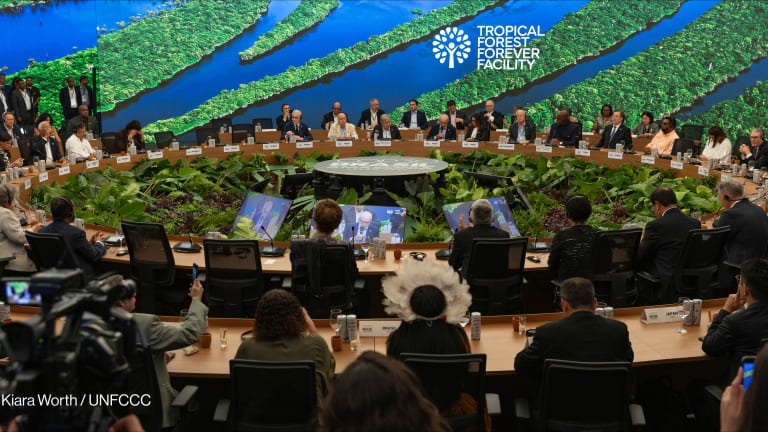
The global trust fund to fight pandemics is getting a rebrand to shed its unwieldy name: Going forward, the Financial Intermediary Fund for Pandemic Prevention, Preparedness and Response will simply be called the Pandemic Fund, as it also gets a slew of big names joining.
Rwanda and Indonesia will co-chair the newly renamed fund’s board, marking a significant change in the typical governing style of such initiatives, with both heads hailing from low- and middle-income countries.
“Grant money is a nice incentive for countries to then put in their own resources.”
— Priya Basu, executive head, Pandemic Fund SecretariatChatib Basri, the former finance minister of Indonesia, and Daniel Ngamije, Rwanda’s health minister, will be the board's co-chairs, Devex can report first.
Also, Mike Ryan, the head of the World Health Organization’s Health Emergencies Program, is being nominated for the role of chair of the technical advisory panel, according to a source. The nomination will likely be made official on Sunday.
The name tweak and appointments come as the fund holds its launch event, scheduled for Sunday in Indonesia, which currently heads the Group of 20 major economies. The G-20 leaders’ summit kicks off Tuesday in Bali.
“The governance is now really inclusive,” Priya Basu, the executive head of the Pandemic Fund Secretariat at the World Bank, told Devex in an interview ahead of the formal launch, pointing to the fund’s board chairs.
“The board intends to issue the first call for proposals as soon as possible,” Basu said, meaning before the end of the year or in January. Basu hopes the first projects will be approved, and money allocated, by May or June.
The fund is still housed in the World Bank and remains a financial intermediary fund, meaning it aims to leverage both private and public sources of money.
The name, though, was not the only challenge facing the fund — which, frankly, is short on funds. So far, about $1.4 billion has been pledged, though the needs are estimated at north of $10 billion annually. Moreover, only a fraction of the pledges — some $400 million — has materialized.
Basu admits the fund needs more donations but says even the $1.4 billion will be stretched, giving the money spent a multiplier effect.
“Every dollar of grant funding that this fund provides will catalyze additional funding at the project level. And it will incentivize countries to put in their own money,” Basu said.
“Grant money is a nice incentive for countries to then put in their own resources,” she noted, because it requires no repayments and no interest fees.
Still, with limited financing available and a wide mandate, nailing down the fund’s priorities to maximize its effectiveness is an ongoing task for the board.
Some of the key areas of focus will be surveillance, including monitoring zoonotic diseases, and building up health workforces so that people are prepared to handle outbreaks early on. This also means improving lab capacities.
On top of the limited amounts of capital, there had been concern that the money coming into the fund was simply being shifted from governments’ existing aid budgets — meaning the fund was not generating new donations for pandemics.
Basu pushed back on this point, noting in particular that some of the philanthropic funding is new, and she believes that countries are also putting up fresh funds, even if in limited amounts.
“This isn't just sort of shifting money from one port to another. This is new money,” she said.
The cash available will also affect the size of the first proposals. Basu noted that initially, the plan is to treat projects as pilots and to start small as the model proves itself — and as more donations hopefully come in.
“I'm optimistic,” said Basu. “One of the things that the fund does is to keep that political momentum going and keeps reminding the world that the next pandemic may be just around the corner.”


